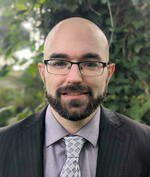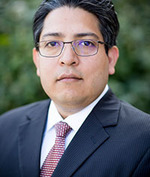The History Department has awarded its three prizes for outstanding written work in 2022–23 by a graduate student. Below are the winners and the justification given by the prize committees. (Past Winners)
(1) The John Highbarger Memorial Award for the best doctoral dissertation
Istvan (Van) Szepesi ’23 (5+1 postdoctoral fellow at Notre Dame), “Unspoken Accommodations: A Century of Religious Coexistence in Cologne, 1517–1617”

“Istvan Szepesi’s dissertation is an outstanding piece of historical research and analysis. Drawing on scholarship in English, German, French, and Dutch, and manuscript sources in Latin and 16th century Rhenish dialect, it studies inter-confessional relations in the city of
Cologne in the long period from the Reformation to the Thirty Years War. Why, in an era notorious for religious violence, did the city’s Catholic authorities tolerate a Protestant minority in their midst? Eschewing monocausal explanations, the dissertation reconstructs the diversity of factors involved, from class conflicts and commercial and strategic interests to personal relationships that crossed religious boundaries and some individuals’ genuine belief in toleration. The dissertation avoids the pitfall of determinism, instead remaining alive to the choices that the historical actors faced in their own time. While anchored in the world of the 16th century, Szepesi’s work holds lessons for the present as well, for it explores timeless challenges of tolerance and pluralism that confront any diverse, conflict- ridden society.”
(2) The Philip Gleason Prize for the best published article
Jorge Puma Crespo ’23 (assistant professor of history, Hope College), “The Nazas-Aguanaval Group: Radical Priests, Catholic Networks, and Maoist Politics in Northern Mexico,” The Americas 79, no. 2 (April 2022): 291–320.

“In the years after the close of the Second Vatican Council, a group of progressive priests in northern Mexico worked with Maoist activists in order to help students and squatters find housing and receive basic services. The scholarship on this phenomenon has treated these coalitions as flash points for the development of liberation theology, and credited their organization to left-wing bishops. In this exhaustively researched and beautifully written article, Jorge Puma sees instead the Nazas-Aguanaval group as part of a grass-roots movement in which progressive priests played a leading role. In this popular movement, religion was never absent, but it was also not at the core of its organization. The priests, animated by the ideals of the Second Vatican Council, carved out a space for dialogue and cooperation with Marxists in the service of helping the poor. As Puma shows, the motive energy in this movement came from the ground up rather than from the Church hierarchy. His article makes a significant historiographic intervention as part of a larger effort to decenter the study of progressive Catholics from bishops and theologians.”
(3) The Vincent P. DeSantis Prize for the best unpublished paper
Gavin Moulton, “From Church Riot to Sit-Down Strike: Polish Catholics and Collective Action in South Bend, 1885-1940”

“This paper uses the small case of two Catholic parishes in South Bend to tell a big story about the transformation of America from the Gilded Age to the New Deal. Drawing on a wide range of published and archival sources in English and Polish, supplementing the study of textual documents with analyses of art and architecture, and engaging with the historiography of immigration, labor, and religion, ‘From Church Riot to Sit-Down Strike’ shows how the experience of Catholic parish life helped turn 19th century Polish peasant immigrants into 20th century American labor activists. Deeply researched and vigorously narrated, this paper is an impressive piece of historical scholarship.”